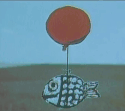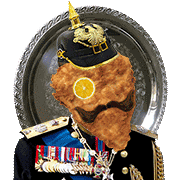|
Hunt11 posted:It was a slow process but I think stuff like the Suez Crisis made it clear that the old game plan wasn't going to work. The 1945-51 Labour government had 'responsible self-rule' for India and Burma as part of its manifesto, but that policy rapidly accelerated to full partition and independence by 1948. Labour was supposedly generally committed to fostering self-government and eventual independence in the African colonies but ended up imposing much stronger direct control from London over many of them and a much heavier military presence since they were seen as important Cold War strategic assets. There was also the rather awkward situation where a lot of Labour's progressive domestic policies were bankrolled by oil and rubber exports from the (unpopular) newly-created Malayan Union. Also very little of the massive pot of Marshall Aid money the UK received was spent domestically; instead it was spent on the military, weapons projects, colonial development and overseas policing. Churchill's 1951 government officially called a halt to even the notional idea of a commitment to decolonisation, before the Suez Crisis forced Eden (and the country at large) to realise that things couldn't go on like that anymore. Malaya would become independent in 1957, and most of the Caribbean territories would be granted independence by the end of the decade. Harold Macmillan gave his 'Wind of Change' speech in 1960 which basically said that the UK would not oppose colonial independence (in reality it had to be the right sort of independence, of course...) and also marked a shift in the UK's official attitude to South Africa and apartheid. All of the UK's African colonies were independent by 1966, and Wilson's government announced the military withdrawal 'East of Suez' in 1968. BalloonFish fucked around with this message at 10:41 on Feb 22, 2020 |
|
|
|

|
| # ? May 21, 2024 09:25 |
|
Libluini posted:You know fairly well that all of this is completely irrelevant, or the Cold War would have never happened. The USA after all is even larger and farther away and yet still people feared the Soviet Union. The idea that a country sitting right next to the Soviet Union would go "Logistics! Russia is therefore no threat to us! quote:[US forces in Japan] may be utilized to contribute to the maintenance of international peace and security in the Far East and to the security of Japan against armed attack from without, including assistance given at the express request of the Japanese Government to put down largescale internal riots and disturbances in Japan, caused through instigation or intervention by an outside power or powers.
|
|
|
|
Libluini posted:You know fairly well that all of this is completely irrelevant, or the Cold War would have never happened. The USA after all is even larger and farther away and yet still people feared the Soviet Union. The idea that a country sitting right next to the Soviet Union would go "Logistics! Russia is therefore no threat to us! There was essentially no communist party in Japan at that time, and anti-Russian propaganda had been an everyday fact of life since 1904. Outside of direct military intervention, the Soviets couldn't make any moves in Japan, and they barely managed to take over a few inconsequential islands that were lightly defended. You are massively overestimating the amount of influence the Soviets could possibly have
|
|
|
|
Don Gato posted:There was essentially no communist party in Japan at that time, and anti-Russian propaganda had been an everyday fact of life since 1904. Outside of direct military intervention, the Soviets couldn't make any moves in Japan, and they barely managed to take over a few inconsequential islands that were lightly defended. You are massively overestimating the amount of influence the Soviets could possibly have
|
|
|
|
HEY GUNS posted:He's not talking about their influence in real life. He's talking about fear in the minds of people making decisions. Those things can be similar or they can be wildly different. Depends on what you mean by the leaders and how immediate post-war is. There's a reason why the JMSDF was one of the largest navies on Earth, and why the Japanese military has a hilariously large budget for something that was never meant to leave Japan, and why the Zaibatsu system survived in modified form as keiretsu. However up until extremely recently their military was literally a defensive force, with most Japanese planning being "Make them bleed for every inch of land, every meter of sea until the Americans get here". But early post-war it wasn't a concern for Japanese leaders as Japanese leadership was just another name for the racist Gaijin Shogun himself, Douglas MacArthur, and the US was focused on massively investing in Japan to make sure that there was no way a communist or leftists could get a toehold and so they'd have a base to defend from Soviet and by extension communist expansion in Asia. However Japan itself had little to no influence over it's own course until after the occupation in 1953 so in the immediate post-war era we can say that the soviets had no influence on Japan because Japan had no influence on Japan. Now if he means after the Occupation then it gets too complicated but I'm not as personally familiar with that era and haven't read as many books about it, but it still fits in with my broad strokes. EDIT: I should mention these views don't reflect the reality, that's how most Japanese leaders saw Japan up until the end of the Occupation. The Soviets don't play a huge part in anyone's thinking since the Soviets aren't literally sitting in the burned out ruins of all your cities, which they also burned until there wasn't even one brick on top of another. Don Gato fucked around with this message at 12:49 on Feb 22, 2020 |
|
|
|
i mean right now it looks like you could be saying "let's discout the effects of misjudgement, fear, bad ideas, and incorrect ideas in making military decisions," and we both know that would lead to a slanted portrayal of events
|
|
|
|
axelord posted:Being part of the British Empire really sucks if you are not English or Scottish. It can be aight if you're Welsh or the right kind of Irish, too.
|
|
|
|
axelord posted:Holding onto India was still possible it just would have been very expensive and needed torturing and killing a whole lot of people. The problem is if you have to deploy thousands of troops to a colony for an indefinitely long period, spending god knows how much money and getting nothing remotely close to paying it all back, what is even the point of owning it in the first place? For the most part, colonies were expected if not always to be profitable than to at least pay for their own administration. To this end, colonial administrations were heavily staffed with local peoples. The police, teachers, administrators, and laborers were all local people. As the colonial period approached its end these groups all came increasingly to believe that their relationship with Europe was unfair, and began to organize and agitate against it. Anti-colonial leaders like Kwame Nkrumah in the Gold Coast were almost always educated and literate with experience working for the colonial government or had spent time living abroad. In order to make the colonies function it was a necessity for the administration to rely on locals. It was just too expensive and difficult for Europeans to handle all these tasks themselves. However by creating networks of educated professionals they sowed the seeds of anti-colonial resistance. To a great extent it would be the same administrators Europe relied on to govern the colonies that would become the strongest advocates for independence, and once their support was lost there was really no way to make owning these colonies viable. Somewhat counter-intuitively, it was often the traditional chiefs and peoples most disconnected from the colonial system that would continue to support the colonial regime the longest. In the Gold Coast the Ashanti Kingdom tended to be pro-British. Although this wasn't necessarily out of love for britain, and more because the Ashanti leaders feared being subordinated to southerners like Nkrumah.
|
|
|
|
Don Gato posted:There was essentially no communist party in Japan at that time, and anti-Russian propaganda had been an everyday fact of life since 1904.  The Japan Socialist Party won 13,5% of the vote and the Japanese Communist Party 10% of the vote in the 1949 general election. Between the two they had 83 seats out of 466 in the lower house. MacArthur stomped on the Communists in the fifties when Stalin started pressuring them for a violent revolution so they lost all their seats in the 1952 election. The Socialist party meanwhile split in two ( The Japan Socialist Party won 13,5% of the vote and the Japanese Communist Party 10% of the vote in the 1949 general election. Between the two they had 83 seats out of 466 in the lower house. MacArthur stomped on the Communists in the fifties when Stalin started pressuring them for a violent revolution so they lost all their seats in the 1952 election. The Socialist party meanwhile split in two ( ) but the two new parties somehow still managed 116 seats. ) but the two new parties somehow still managed 116 seats.Edit: Hell the Socialist Party won the 1947 election (and then immediately collapsed because their left wing threatened to block the budget proposal  ): https://en.wikipedia.org/wiki/Katayama_Cabinet ): https://en.wikipedia.org/wiki/Katayama_CabinetEdit: Found MacArthur's letter to the Prime Minister instructing him to purge the entire Communist Party leadership from office: https://www.ndl.go.jp/modern/e/img_r/M009/M009-001r.html Siivola fucked around with this message at 15:01 on Feb 22, 2020 |
|
|
|
BalloonFish posted:The 1945-51 Labour government had 'responsible self-rule' for India and Burma as part of its manifesto, but that policy rapidly accelerated to full partition and independence by 1948. Labour was supposedly generally committed to fostering self-government and eventual independence in the African colonies but ended up imposing much stronger direct control from London over many of them and a much heavier military presence since they were seen as important Cold War strategic assets. There was also the rather awkward situation where a lot of Labour's progressive domestic policies were bankrolled by oil and rubber exports from the (unpopular) newly-created Malayan Union. Also very little of the massive pot of Marshall Aid money the UK received was spent domestically; instead it was spent on the military, weapons projects, colonial development and overseas policing. To add to this, post-war britain REALLY needed to keep it's colonies in the empire and on the pound (that it could control) so that it could buy all their produce (esp. oil and rubber from Malaya and metals from their African colonies) in sterling and then sell them to the US for hard dollars to try and pay off their massive debts after two world wars. While the British empire was certainly extractive pre-war, immediately post war it all started really getting squeezed very hard to pay for the war, and this provoked lots of bad feeling in the colonies that might not have happened quite so quickly without having to pay for the war. John Darwin's 'Unfinished Empire' is a really great look at the British empire, including (but not specifically about) decolonization.
|
|
|
|
Comet Queue: Faustpatrone, [Puppchen, Panzerschreck, and other anti-tank rocket launchers], Heavy Tank T32, Heavy Tanks T30 and T34, T-80 (the light tank), MS-1 production, Churchill Mk.VII, Alecto, Assault Tank T14, S-51, SU-76I, T-26 with mine detection equipment, T-34M/T-44 (1941), T-43 (1942), T-43 (1943), Maus development in 1943-44, Trials of the LT vz. 35 in the USSR, Development of Slovakian tank forces 1939-1941, T-46, SU-76M (SU-15M) production, Object 237 (IS-1 prototype), ISU-122, Object 704, Jagdpanzer IV, VK 30.02 DB and other predecessors of the Panther, RSO tank destroyer, Sd.Kfz. 10/4, Czech anti-tank rifles in German service, Hotchkiss H 39/Pz.Kpfw.38H(f) in German service, Flakpanzer 38(t), Grille series, Jagdpanther, Boys and PIAT, Heavy Tank T26E5, History of German diesel engines for tanks, King Tiger trials in the USSR, T-44 prototypes, T-44 prototypes second round, Black Prince, PT-76, M4A3E2 Jumbo Sherman, M4A2 Sherman in the Red Army, T-54, T-44 prototypes, T-44 prototypes second round, T-44 production, Soviet HEAT anti-tank grenades, T-34-85M, Myths of Soviet tank building: interbellum tanks, Light Tank M24, German anti-tank rifles, PT-76 modernizations, ISU-122 front line impressions, German additional tank protection (zimmerit, schurzen, track links), Winter and swamp tracks, Paper light tank destroyers, Allied intel on the Maus , Summary of French interbellum tank development, Medium Tank T20, Medium Tank T23, Myths of Soviet tank building, GMC M10, Tiger II predecessors, Pz.Kpfw.IV Ausf.H-J,IS-6, SU-101/SU-102/Uralmash-1, Centurion Mk.I, SU-100 front line impressions, IS-2 front line impressions, Myths of Soviet tank building: early Great Patriotic War, Influence of the T-34 on German tank building Available for request:  IS-6 AT-1 Career of Semyon Aleksandrovich Ginzburg  Medium Tank T25 GMC M36 15 cm sFH 13/1 (Sf) Oerlikon and Solothurn anti-tank rifles Geschützwagen Tiger für 17cm K72 (Sf) NEW  Lahti L-39
|
|
|
|
Don Gato posted:There was essentially no communist party in Japan at that time, and anti-Russian propaganda had been an everyday fact of life since 1904. Outside of direct military intervention, the Soviets couldn't make any moves in Japan, and they barely managed to take over a few inconsequential islands that were lightly defended. You are massively overestimating the amount of influence the Soviets could possibly have The big fantasy for the Japanese Supreme Council in the late war was the idea of a Soviet-brokered peace. The Japanese were interested in negotiated surrender, but the Americans were asking for unconditional surrender. So they desperately put out these feelers to the Soviet Union, trying to get them to mediate a peace deal that would let the Japanese keep some of their colonies, in particular Manchuria. The Soviets just delayed the negotiations, but suddenly invaded Manchuria and Sakhalin Island just after Hiroshima was bombed. This was what you might call a "double whammy", and no doubt influenced the final decision to capitulate.
|
|
|
|
If I remember correctly the negotiated terms they wanted were ridiculous given everything that was happening as well.
|
|
|
|
Slim Jim Pickens posted:This was what you might call a "double whammy", and no doubt influenced the final decision to capitulate. Just as long as you don't indulge in fantasies like the Soviet Union invading the Home Islands. That was not ever going to happen and no one thought it would happen.
|
|
|
|
surf rock posted:3.) The Italian military in the world wars (especially World War II) has a reputation for sucking, I think. ...Why did they suck? Did they actually? Short answer: it depends. The Italian Navy was built for a specific mission in mind: fighting France's navy for the Mediterranean. So it was heavily outclassed when it found itself in a war against the UK. What's worse, the Italian Navy was functionally a "daytime/good weather" fleet. Despite Italy being a major center for prewar radar research, none of the Italian Navy ships had radar, and they only belatedly figured out that the Royal Navy did. (The Germans could have told the Italians this when they declared war, but they were dicks.) The Royal Navy was much bigger than the Italian Navy, obviously - but they also had globe-spanning commitments. To compensate, the Royal Navy only tried to engage the Italians when at a decisive advantage, IE at night or in bad weather, when they could use their radar to best advantage. The naval battle in the Mediterranean went back and fourth with each side getting the initiative and then losing it, but the basic weakness of the Italian economy, and especially having to rely on the Nazis for oil imports meant it would lose in a war of attrition. The Italian navy having battleships meant that the British had to guard Malta convoys with fleet carriers and battleships, so they got a good "fleet-in-being" effect just by existing. Italian Naval special forces also pulled off some very impressive operations. As for the other two services: the Air Force was competent but suffered even more acutely from the weakness of Italy's industrial base. While the Italians cranked out some impressive designs, getting them manufactured and equipping squadrons with them was another thing. The Italian Army, I don't know much aside from the thread consensus. That's that the Italian army was just as effective as any other army, but badly lead due to fascist favoritism. I know in North Africa, they suffered an incredible defeat after invading Egypt. bewbies posted:It can be. For some reason I don't remember, the RAF wanted its P-38s with the props rotating in the same direction (the also took off the turbos for some reason). Surprise, they thought it was a piece of poo poo.
|
|
|
|
bewbies posted:It can be. For some reason I don't remember, the RAF wanted its P-38s with the props rotating in the same direction (the also took off the turbos for some reason). Surprise, they thought it was a piece of poo poo. The Anglo-French Purchasing Commission placed two batches of orders for the P-38 in March 1940, one each for the AdA and the RAF. Both specified right-turning engines to provide commonality with the large numbers of P-40s/Hawk 81s they had on order. The lack of turbos was not desired by the Europeans but was forced on them, because they needed aircraft ASAP and the US turbocharger programme was barely out of the experimental stage and only just entering series production. It would take longer for the orders to be fulfilled if they were for turbocharged planes, and there was a very real possibility that the US government would restrict or veto the supply of turbos to foreign orders, bearing in mind that the US wasn't in the war yet and had already earmarked all the available turbo production (and then some) for its own projects. These were orders born mostly out of desperation anyway. There's evidence that the RAF especially had no intention of actually receiving any Lightnings, instead placing the order to keep the P-38 project looking viable while it was worked up to a more practical and useful form; either the order would be postponed until the Lightning reached a satisfactory form or the order would be cashed in for more Hudsons/Venturas.* At the time the order was placed the Lightning was still in prototype XP-38 form, anyway. It wouldn't reach the pre-production 'evaluation' YP-38 step until September 1940 and that still lacked things such as self-sealing fuel tanks, ArmorGlass windshield, an armoured pilot's seat and a full armament...not to mention decently reliable turbochargers. * Edit: Worth saying that in the end most of the French order was taken over by the British after the Battle of France and by the time Lockheed was in a position to even think about starting on the RAF order the US had joined the war and the Lightning still wasn't what the RAF needed or wanted. So the British transferred their order for 640+ P-38s to the USAAF in return for more Lend-Lease P-40s, apart from three which were retained for evaluation purposes. Since these were built without turbos (while when fulfilled for the USAAF the P-38s were built with them) the evaluation came back as 'pretty crappy, really'. The P-38 was never used operationally by the RAF although the RAAF and the Free French Air Force did use it. BalloonFish fucked around with this message at 03:38 on Feb 23, 2020 |
|
|
|
I can never think about the P-38 without thinking of ace pilot Major Dick Bong
|
|
|
|
MikeCrotch posted:I can never think about the P-38 without thinking of ace pilot Major Dick Bong I see he has a State Recreation Area named after him in Wisconsin which, although a sadly-missed opportunity to officially call it the "Major Dick Bong Recreation Area", is locally signposted just as "Bong Recreation Area", with the inevitable result that it : quote:is a frequent target of sign theft. This has led to the manufacturing of T-shirts and sweatshirts bearing the highway exit sign.
|
|
|
|
It's at this point I'd tell you about Dick Armey (pronounced Army) if it wasn't for Family Guy beating me to it
|
|
|
|
Telsa Cola posted:If I remember correctly the negotiated terms they wanted were ridiculous given everything that was happening as well. They basically wanted to keep control of Manchuria and Korea, have all war criminal trials be conducted by Japan only, no occupation of the home islands, and no change to the emperor's position. It was an utterly insane ask considering how badly they were getting their teeth kicked in at that point. It's like Hitler trying to negotiate peace on the basis of keeping Poland, Austria, and Czechoslovakia while Soviet forces are streaming across the German border. On a 1944-1945 Pacific front note, as part of my beach vacation reading list this week I worked through Max Hasting's Nemesis. It's the first book of his I've read and I'm not sure I'm a fan. He tends to ramble and isn't nearly as good at writing an engaging narrative as someone like Beevor. Mr Luxury Yacht fucked around with this message at 23:31 on Feb 22, 2020 |
|
|
|
That's what I get for drunk posting. Thanks for correcting me on the communist party, I conflated three completely different eras (immediately postwar when they won 10% of the vote, when Stalin disowned them in the 50s and their subsequent actions, and the Sino-Soviet Split). I still maintain that immediate post war, the main influence the Soviets had was in relation to the US since most of what happened in Japan up until the Occupation ended was either at the behest of the US, or the US unilaterally acting and Japan having to react.
|
|
|
|
Nebakenezzer posted:The Italian Army, I don't know much aside from the thread consensus. That's that the Italian army was just as effective as any other army, but badly lead due to fascist favoritism. I know in North Africa, they suffered an incredible defeat after invading Egypt. Phone posting right now, but I recall a few posts on the subject of the Italian army suggesting that they rearmed just a bit too early, in the early-to-mid 1930’s. Most of the equipment they had was on par with what other militaries had during the Spanish Civil War, but they really didn’t keep up with development a huge after that (Never mind the already mentioned production issues that impacted everything), while everyone else really stepped up in 38-40, so the Italian equipment like tanks and stuff was very quickly passed and obsolete.
|
|
|
|
There's Dick Best, too. Don't forget about him, when you forget about Dick Best he drops a 500 pound bomb into your elevator hole.
|
|
|
|
fartknocker posted:Phone posting right now, but I recall a few posts on the subject of the Italian army suggesting that they rearmed just a bit too early, in the early-to-mid 1930’s. Most of the equipment they had was on par with what other militaries had during the Spanish Civil War, but they really didn’t keep up with development a huge after that (Never mind the already mentioned production issues that impacted everything), while everyone else really stepped up in 38-40, so the Italian equipment like tanks and stuff was very quickly passed and obsolete. From Wages of Destruction, the Germans were explicitly aware that their route to rearmament was unsustainable and would peak in 1939 with a drop in production (due to inflation and lack of foreign currency for vital imports) afterwards. It was only the success of the invasion of Poland, France and the Low Countries and seizing a bunch of assets that let them carry on as long as they did. I suspect what happened to Italy is an example of what happens if you don't time your ramp up right or don't get the success when you need it.
|
|
|
|
Extremely last minute but is the “gun tour” aboard the USS Iowa in LA worth it? I’m limited on time and funds (LA expensive it turns out) but I do wanna climb down ladders and the such. Relatedly, does the general tour include the fire control system? Think that’s the only way to convince my boyfriend y’know
|
|
|
|
zoux posted:Ejecting from a fighter would scare the poo poo out of me. I read that a significant number of pilots who survived ejection had to be medically retired because it fucks you up so bad. Did that guy who punched out of an F-15 at mach 1 ever fly again? I don't know the numbers, but a lot of folks came back in style. Take Douglas Bader, who lost both his legs doing some downtime acrobatics in his plane, and then was reinstated at the onset of WW2. He insists he actually flew better because his blood had nowhere to go in high-G maneuvers. Dude must have had some abs of steel!
|
|
|
|
Tias posted:I don't know the numbers, but a lot of folks came back in style. Take Douglas Bader, who lost both his legs doing some downtime acrobatics in his plane, and then was reinstated at the onset of WW2. He insists he actually flew better because his blood had nowhere to go in high-G maneuvers. Dude must have had some abs of steel! 
|
|
|
|
He tried to escape so many times from captivity that the Germans threatened to take away his prosthetic legs.
|
|
|
|
“Ve think you are trying to escape!”
|
|
|
|
zoux posted:Ejecting from a fighter would scare the poo poo out of me. I read that a significant number of pilots who survived ejection had to be medically retired because it fucks you up so bad. Did that guy who punched out of an F-15 at mach 1 ever fly again? i'm sure everyone who does is scared to some extent, but when you think about it in terms of your alternatives, pulling the handle is probably a pretty easy choice people who are scared of poo poo to the extent that they can't make the right decisions tend to get weeded out
|
|
|
|
Telsa Cola posted:If I remember correctly the negotiated terms they wanted were ridiculous given everything that was happening as well. At the very least, they wanted to keep all their colonies and spheres of influence in Manchuria and Korea, even though they had pulled out practically every good soldier out of the region leaving behind a skeleton crew. This means that Stalin could, and eventually did, take all of Manchuria and Korea with very little effort. But for some reason, leaders in Imperial Japan believed that Stalin either didn't want influence in Manchuria and Korea or that Stalin would be willing to help them out of the goodness of his heart. Don Gato posted:That's what I get for drunk posting. Thanks for correcting me on the communist party, I conflated three completely different eras (immediately postwar when they won 10% of the vote, when Stalin disowned them in the 50s and their subsequent actions, and the Sino-Soviet Split). I still maintain that immediate post war, the main influence the Soviets had was in relation to the US since most of what happened in Japan up until the Occupation ended was either at the behest of the US, or the US unilaterally acting and Japan having to react. The whole reason the official Japanese Communist Party is still around and still regularly wins about a dozen seats in the Japanese diet every election is that they repudiated both Stalin and violent revolution before Stalin died. It's really bizarre for a Communist group to go full parliamentarian strategy in a era when Stalin is still alive and Mao won China just a few years ago. Of course, the people who didn't want to stop with violent tactics split off, because that's how those groups are. See the massive tree of splits of everyone who claimed to be the IRA. 
|
|
|
|
golden bubble posted:At the very least, they wanted to keep all their colonies and spheres of influence in Manchuria and Korea, even though they had pulled out practically every good soldier out of the region leaving behind a skeleton crew. This means that Stalin could, and eventually did, take all of Manchuria and Korea with very little effort. But for some reason, leaders in Imperial Japan believed that Stalin either didn't want influence in Manchuria and Korea or that Stalin would be willing to help them out of the goodness of his heart. lol at the pic Though I think that that it's missing some organizations from the beginning, or are the United Irishmen not thought to be IRA's predecessors? Actually, could someone post about the United Irishmen, I'm only familiar with them from the Aubrey/Maturin books.
|
|
|
|
Ensign Expendable posted:Interestingly enough, no. Zamulin had a video about trying to figure out how the military counted wounded soldiers who died en route from their unit to a hospital, turns out that neither party would accept that the soldier died in their care. I'm picturing the Parrot Sketch but two Kraut medics arguing about a dead stormtrooper.
|
|
|
|
Pining for the Odelfhoffen?
|
|
|
|
What kind of scrub-tier bureaucracy doesn't have a Formular to hand over the guy to the Reichsbahn for transit. Once he arrives at his destination Reichsbahn properly hands him off again, sign here, there, couple stamps, two Ausfertigungen each for the Reichsbahn, for the receiving institution, for the Wehrmacht, for the soldier, for his unit, easy breezy.
aphid_licker fucked around with this message at 22:11 on Feb 24, 2020 |
|
|
|
Vincent Van Goatse posted:Do you know any good books about the late AHE government? I'm writing a story set in a state with a government held together more-or-less Franz Josef style and I'd like to learn more about the original and all it's myriad malfunctions. Maybe Fall of the Double Eagle: The Battle for Galicia and the Demise of Austria-Hungary by John R. Schindler? It's been a while, but the book gets into the AHE's military, it's absolute importance to the Hapsburg government, and how the AHE functioned in the lead up to the war and the collapse after their military suffers too greatly. The author emphasizes the importance of the army to holding the empire together, and the politicians' fetish for military culture. Also describes the complicated nature of how ethnic minorities approached the Hapsburgs. If you were a Romanian living in Hungary, you might prefer the AHE to a hypothetical independent Hungary built on Magyar supremacy. It doesn't go too deep into domestic politics, mostly centering on how ethnic groups performed in combat and volunteerism rates and how those changed as the war continued.
|
|
|
|
https://www.youtube.com/watch?v=R5YWlKBTOmg This vid gives a brief overview of the structure of the austro-hungarian empire during the intro.
|
|
|
|
aphid_licker posted:What kind of scrub-tier bureaucracy doesn't have a Formular to hand over the guy to the Reichsbahn for transit. Once he arrives at his destination Reichsbahn properly hands him off again, sign here, there, couple stamps, two Ausfertigungen each for the Reichsbahn, for the receiving institution, for the Wehrmacht, for the soldier, for his unit, easy breezy. related to this, this youtube channel which simply records select quotes from old primary sources just released one of an Arab traveler who visited Tang China https://www.youtube.com/watch?v=jvZ_tWbEVWk One thing that stood out to me is the remarkably organized internal customs system, with all merchants supposedly carrying identification and documents describing their wares and where they've been, where they are going. When would European states set up comparably organized systems?
|
|
|
|
Squalid posted:One thing that stood out to me is the remarkably organized internal customs system, with all merchants supposedly carrying identification and documents describing their wares and where they've been, where they are going. When would European states set up comparably organized systems?
|
|
|
|

|
| # ? May 21, 2024 09:25 |
|
WW2 Data An aircraft and a naval rocket are on display today, with the aircraft rocket being a suspected copy of a foreign design. Which country is it likely copied from? Could it use a ground-launcher instead and, if so, which did it use? What was the naval rocket explosive composed of? Why would it be marked with a /400/ or /800/ at times? How high could the rocket reach if launched 90 degrees upward? All that and more at the blog!
|
|
|













































